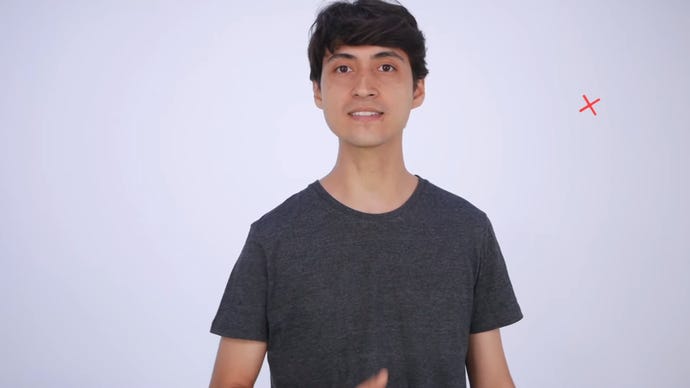Brazilian Fans Were Feeling Abandoned by Nintendo, So They Decided to Host a Nintendo Direct of Their Own
If you build it, the Switch games will come.
This article first appeared on USgamer, a partner publication of VG247. Some content, such as this article, has been migrated to VG247 for posterity after USgamer's closure - but it has not been edited or further vetted by the VG247 team.
Nintendo is an international company, but that doesn't mean all regions have the same access to Nintendo games. In Brazil especially, Nintendo fans have had trouble getting a hold of games, getting information in their native language, and promoting their local developers. So fans decided to make a Direct about it. An unofficial Brazilian Nintendo Direct, by and for Brazilian Nintendo fans.
"In Brazil, we fans feel a bit abandoned by Nintendo," says Rodrigo Coelho, who led the charge on the Direct project. "They were here officially in the '90s and there are thousands of fans. But nowadays if you want to play Nintendo in Brazil, you have to import games. And with that comes a high price. It is not cheap to be a Nintendo fan in Brazil."
What started with a fan petition, under the name Fãs de Nintendo do Brasil (Nintendo Fans from Brazil), developed into a larger movement. It made a few requests: that Nintendo first-party games, like Zelda and Pokemon, get Portuguese language support; a Brazilian Nintendo channel, similar to Nintendo Portugal; presentations in Brazilian Portuguese, and official Nintendo events in Brazil. For several months, Coelho gathered fansites and Brazilian devs, building up Discord channels and boosting support through the hashtag #QueremosNintendo (#WeWantNintendo).
Nintendo vacated the Brazillian market in 2015, citing "high import duties that apply to our sector." While the Switch eShop is still available in the region, players report limited functionality, suggesting that the Brazilian just buy games via the US eShop.
Coelho's motivation to put this Direct together wasn't just to showcase games, but to grab Nintendo's attention and to have fans' voices heard by Nintendo. "We really wanted to show Nintendo that we want to be a part of the community too," Coelho says.
The Direct was largely a one-man effort from Coelho. As fansites boosted the #QueremosNintendo movement and grew grassroots support, Coelho reached out to developers with Brazilian backgrounds to feature their games. Alongside announcing the Switch port of games like Chroma Squad, he also showcased many games currently available for the console, in a format modeled after Nintendo's Nindies showcases. Despite currently living in Tokyo, it was important for Coelho to bring in local devs like Long Hat House and Bitten Toast Games.
"I'm always happy to see Brazilian games getting attention, so I was happy to join and share the event," Daniel Nascimento of Bitten Toast Games.
All the studios taking part were either in Brazil, or had developers hailing from Brazil, and each was receptive to the idea, with some boosting the movement and Direct on their own channels. After a filming session at YouTube Space Tokyo and help from an editor, Coelho had his Direct; once it passed the YouTube team's clearance process, it was time to broadcast and see what the reception would be like.
The Grassroots Nintendo Direct is a Success
On the day of the Direct, it hit a peak of 4500 live viewers, with a constant 4200, according to Coelho's numbers. Digplay, a large Brazilian Nintendo channel, reportedly hit 2300 peak live viewers. It was huge, in Coelho's eyes. He felt it was comparable to a live Direct event.
Since the air date, Coelho has been continuing to compile results to further the movement. He tells me some developers have been contacted already by Nintendo representatives, congratulating them on the Direct. A spokesperson for Long Hat House, the developer of the criminally underrated Metroidvania Dandara, seems hopeful for the future.
"It would be great for Nintendo to look into [Latin America] as a whole, there's a lot to be gained from that," a dev Long Hat House told us. "The quality of the games produced here keeps getting better year after year, and we have a huge consumer base that loves them."
Coelho simply hopes the message is heard. He's successfully motivated a groundswell of support for the Brazilian region, and the ball is in Nintendo's court. "We hope to at least get a response from Nintendo," Coelho says. "Recognizing the movement and the love of the Brazilian fans."


